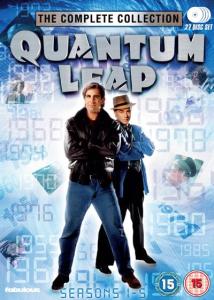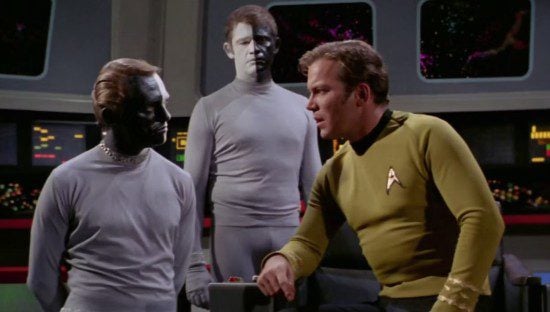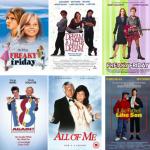• Here’s why our internet was out for the start of the year: “Suspect wanted for intentionally cutting Comcast fiber lines in Chester County.” Listen, all y’all, it’s a sabotage.
 Comcast and the local police both describe this as an act of “vandalism,” which is probably correct. Alternatively, it may have been the work of time travelers who had calculated that some future calamity was contingent on a single email sent from Honeybrook in early January, 2025. Or maybe the incident the time travelers were sent to avert was something obliquely set in motion by a comment by one of you on what would have been my New Year’s post. In any case, cords cut, incident averted, future saved.
Comcast and the local police both describe this as an act of “vandalism,” which is probably correct. Alternatively, it may have been the work of time travelers who had calculated that some future calamity was contingent on a single email sent from Honeybrook in early January, 2025. Or maybe the incident the time travelers were sent to avert was something obliquely set in motion by a comment by one of you on what would have been my New Year’s post. In any case, cords cut, incident averted, future saved.
But alas for our time travelers, they may return to this happier future with no memory of what just didn’t happen. (I think I understand what that article suggests for Dr. Sam Beckett, but I’m not sure what it means for Dean Stockwell’s memories as Al.)
One weird thing about the local outage was that Booman — aka Progress Pond — wasn’t affected. And he’s just on the other side of town from me. (Twenty years of reading each others’ blogs and we’ve never met in person, though my older daughter met him one day when they were both canvassing for Obama in 2012.)
• “The reasons are sociological and obvious,” said a sociologist, obviously. That’s from a brief analogy James Davison Hunter makes in Democracy and Solidarity, comparing the effort to save democracy from social-media saboteurs to parents’ efforts to raise their children unaffected by pop culture.
I’ve seen this quoted in a couple different places, so let me scratch what itches me about it and why I don’t like the analogy:
The difficulty reflects the same reasons that parents who wish to protect their children from the corrosive effects of the internet or popular culture struggle as they do. The family is a weak institution compared to the popular culture industry. Parents may have limited success, but the institutional power of the entertainment industry and of the internet more broadly ensure that any success is, at best, temporary. The reasons are sociological and obvious.
This reads like some Dad still upset that his daughter made a joke about his cargo shorts and New Balances. Or like the lament of a suburban parent whose child has just used their credit card to purchase six units of teen rebellion from Hot Topic.
I suppose the fact that some families do accept and perform those stereotypical acts of prepackaged, commodified generational conflict shows that “The family is a weak institution compared to the popular culture industry.” But then again Hot Topic isn’t a hot topic for every family. Nor are we all living out the script from a James Dean movie, or a ’60 rock song about my g-g-g-generation, or a 1980s anti-drug PSA from Nancy Reagan.
“The popular culture industry” or “the entertainment industry” is not a Monolithic Entity promoting a single agenda that is always, and at all times, at odds with the values of parents trying to raise their children. To the extent that pop culture and most of what falls into that vague description of “entertainment” (movies, TV, books, comics, songs, vaudeville, poems, ballads, wood-cuts, etc.) — to the extent this all has a single agenda, that agenda is story-telling.
And story-telling is not at odds with the values of parents trying to raise their children. It is the reservoir of those values — the primary way we humans convey and reinforce the values passed down from generation to generation, inside and outside of families. Stories are not something parents should be afraid of. Nor are they something parents need to “protect” their children from.
I mean, yes, there are also plenty of stories out there that convey toxic values or that seem utterly nihilistic and meaningless, but those stories aren’t from pop culture or “the entertainment industry” — they’re from the news (especially in the business pages).
The picture that Hunter is painting here involves benevolent parents whose role it is to protect their innocent children from a dangerous and hostile world. That frames parenting as about protection from more than preparation for.* It also presumes that parents will always be benevolent and successful. That’s not always the case — some kids, alas, are raised in abusive families. It’ll take those kids a lot of work to get over that and beyond that because, well, the family is a much stronger and more influential institution than pop culture or anything else outside of it. The reasons are psychological and obvious.
• For those who didn’t catch the Quantum Leap references up top, that’s what the bit about “Dr. Sam Beckett” and Dean Stockwell refers to — the 1989-1993 primetime network television program Quantum Leap. This was a sci-fi/time-travel genre show, but it was also a mainstream, family show — upbeat, positive, wholesome entertainment.
This is why Quantum Leap is thus a good example of the sort of “pop culture” menace described in Hunter’s critique. Sure, he seems to make all of “the popular culture industry” sound like GG Allin — the notorious, transgressive punk famous for defecating on stage and attacking audience members. But the industry didn’t produce or promote Allin and his records never sold. The industry did produce and promote Quantum Leap, and millions of Americans watched and enjoyed it every week for years.
But while Quantum Leap may have been wholesome and positive story-telling, it still prompted a defensive backlash from many arents who viewed it as an offensive, threatening challenge to their parental values. This was precisely the same defensive backlash that an earlier generation of parents had against the original series of Star Trek — another relentlessly positive, wholesome, genre show embraced by popular audiences.

What got a lot of parents’ panties in a twist with both of those shows was the way they told stories that showed different kinds of people overcoming their differences. Or, to use fewer words, the way they told stories. Period.
This upset parents who saw it as undermining the lessons and values they were trying to instill in their children. Those parents might have limited success for a time, but then their efforts would be overwhelmed by the flood-tide of propaganda from the entertainment industrial complex — i.e., a scene with Kirk and Uhura kissing, or a story about Sam Beckett leaping back into the life of a Black man in 1955 Mississippi.
Stories like those will always be perceived as dangerously anti-conservative because they challenge the in-group/out-group distinction foundational to conservatism. And this will happen, generation after generation, as the stories change to keep up with the ever-changing lines and exclusions defining those in-groups and out-groups. Stories will perpetually challenge such divisions and distinctions, because that’s how they work — conflict-to-resolution, not the other way around.
Sometimes parents won’t like the new version of those old stories. But they’re the same stories, and they’re always going to be about different kinds of people overcoming their differences because that’s what stories do.
* Parenting involves both, of course. Consider, for example, the amount of time parents of young children spend saying both “Please, just eat some of it” and also “Omigod — what have you got in your mouth?”













